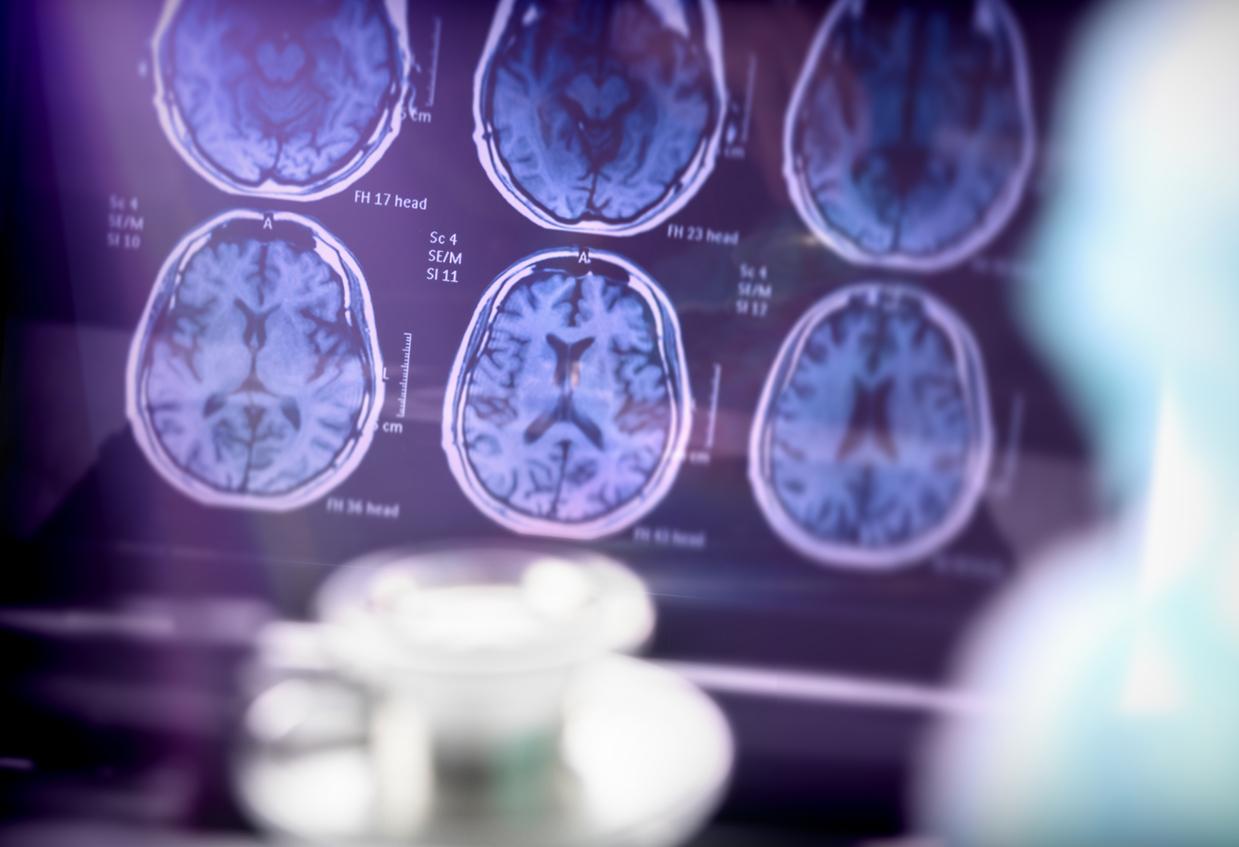A protein called ARL6IP1 could be at the origin of the development of neurodegenerative diseases, which is an advance in the understanding of pathologies such as Alzheimer’s.

- A protein would be responsible for the development of neurodegenerative diseases.
- This is the ARL6IP1 protein.
- More than one million people are affected by Alzheimer’s disease in France, the most common neurodegenerative pathology in France.
In France, more than a million people are affected by Alzheimer’s disease and other dementias, according to Public Health France. Alzheimer’s is the best-known and most frequent neurodegenerative pathology in France. She is partly due to the formation of protein plaques – called amyloid plaques – around the neurons which prevent them, among other things, from functioning properly. But, as with all neurodegenerative diseases and disorders, scientists still don’t know much about their causes and are working to better identify them.
A protein at the origin of the development of neurodegenerative diseases
Thus, a study recently published in the journal scientist Naturebrings a new element of understanding: the development of neurodegenerative disorders could be due to a protein called ARL6IP1.
During their work, the scientists studied the endoplasmic reticulum (ER) in mice. This participates in the correct folding of proteins which have just been synthesized and in cellular metabolism, by synthesizing lipids and storing calcium. It also renders toxins that have entered the cell harmless.
“In mice that lack the ARL6IP1 protein, we can see that the ER expands and degenerates as the cells ageexplains Christian Hübner, one of the authors of this study. This leads to an accumulation of misfolded proteins or clumps of proteins, which are no longer eliminated in the cell. As a result, nerve cells in particular, which do not renew themselves as quickly as other cells in the body, die, causing the clinical symptoms in affected patients and genetically modified mice.”
Further research to understand neurodegenerative diseases
In previous work, the researchers demonstrated the role of FAM134B in the development of neurodegenerative disorders. With this new publication, they therefore go further and claim that two proteins are responsible: FAM134B and ARL6IP1.
Further work will be needed to determine whether neurons or other cell types could also be at the root of the development of neurodegenerative diseases.
















